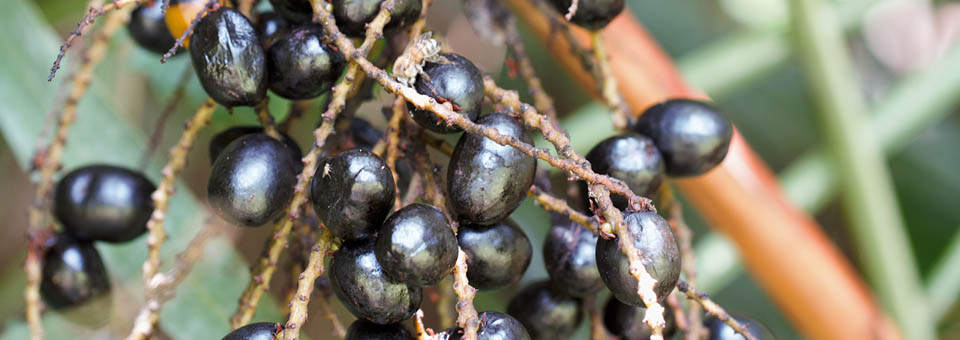When I reviewed the latest guidelines on treating an enlarged prostate from the American Urological Association,1 I wasn’t surprised…
But I was angry.
The AUA’s misguided guideline flat-out says that supplements like saw palmetto and stinging nettle are worthless.
But they wholeheartedly recommend toxic, killer prostate drugs like anticholinergics.
These Big Pharma pills fatally injured nearly 3,000 people in the last 10 years; 68,663 people over the last 10 years. And killed 2,739.2
But in many more cases — nearly 70,000 in fact — they caused serious side effects like dementia, hallucinations, memory problems, confusion and delirium.
In fact, the majority of these drugs actually cause more urinary problems.
Men with prostate problems — like enlarged prostate and urinary issues — come to my clinic all the time. They’re confused about all the conflicting information out there…
And a well-publicized recommendation like the one I just read from the AUA only adds to their confusion.
I tell them about the powerful research behind my favorite herbs, minerals and nutrients for men’s health.
You might wonder why the country’s official urology organization would be so biased. And off-base.
As I mentioned before, when it comes to Big Pharma’s drugs, the answer lies just below the surface.
Here’s a hint: Follow the money.
The manufacturers that make these dangerous drugs — Pfizer, Janssen, Astellas and more — give millions of dollars to organizations like the AUA every single year.3
Here are a few examples of the pay-to-play that goes on in the pharmaceutical industry…
Just recently, the AUA announced a $3 million endowment from Astellas. That’s the Japanese maker of Myrbetriq. This drug injured 8,904 people, seriously harmed 2,308 people and killed 49 people between 2012 and 2018.
And the Big Pharma giant, Janssen, is also in the AUA’s good graces. It
got an award from the AUA in 2017.But its Ditropan drug seriously injured 577 over the last nine years; 53 of them fatally.
In 2013, the global drug company Allergan won an award from the AUA. But its Flomax drug has such serious side effects that the Journal of the American Medical Association called on the FDA to put its most serious Black Box warning label on this drug.
But the FDA has done nothing over the last nine years.
I Recommend These 3 Science-Backed Supplements to My Patients
I don’t offer my patients deadly drugs for their prostate and urinary health support. I offer them science-based supplements and natural approaches.
Here are the proven-effective supplements the AUA doesn’t want you to know about:
- The first is saw palmetto (Serenoa repens). This is my go-to recommendation for men with prostate issues. And the research backs me up…
A group of Italian researchers showed that saw palmetto, in addition to selenium and lycopene, was effective in helping men reduce symptoms of BPH.4 And a 2017 Chinese study looked at saw palmetto in men with prostatitis — or inflammation of the prostate gland. The saw palmetto supplement showed “dramatic improvements” in average urinary flow and less having to wake up at night to go to the bathroom.5
But buyer beware… Not all products containing saw palmetto are the same. Many manufacturers cut corners mixing in the leaf of the plant instead of extracting its fatty acids from the berry of the plant, which are the key active ingredients.
For BPH concerns, I recommend at least 150 mg of a high-quality saw palmetto berry extract daily.
- If that doesn’t work, I recommend stinging nettle (Urtica dioica). If you’re not finding significant relief, add this herb. A recent review of controlled clinical studies found there is “strong evidence” for the efficacy of stinging nettle.6
Once considered a “poor man’s vegetable” more than an herb, stinging nettle has anti-inflammatory properties and promotes prostate health. I recommend 140 mg a day in supplement form.
- If you’re still not satisfied, try adding pumpkin seed oil. Consider spicing things up with pumpkin seed oil. It can calm a busy bladder by strengthening the tissue of your pelvic-floor muscles.
A recent experimental study out of Nigeria found that supplementing test animals with pumpkin seed oil improved the levels of testosterone and reduced symptoms of BPH.7
And a Korean study looked at pumpkin seed oil and saw palmetto in men with BPH.8 The study found that the combination reduced BPH symptoms and improved their urinary flow rate.
Eating organic pumpkin seeds is a good way to go. But you’d need to eat a lot of seeds. So I suggest supplementing with at least 100 mg of pumpkin seed oil a day.
To Your Good Health,
![]()
Al Sears, MD, CNS
1. American Urological Association. American Urological Association Guideline: Management of Benign Prostatic Hyperplasia (BPH). Revised 2010. Available here: http://www.auanet.org/benign-prostatic-hyperplasia-(2010-reviewed-and-validity-confirmed-2014
2. U.S. Food and Drug Administration. FDA Adverse Event Reporting System (FAERS) Public Dashboard. Last updated July 17, 2018. Available here:
3. Kassirer JP. On the Take: How Medicine’s Complicity With Big Business Can Endanger Your Health. New York: Oxford University Press, 2005.
4. Morgia G, et al. “Serenoa repens + selenium + lycopene vs tadalafil 5 mg for the treatment of lower urinary tract symptoms secondary to benign prostatic obstruction: A Phase IV, non‐inferiority, open‐label, clinical study (SPRITE study).” BJU Int. 2018;122(2):317-325.
5. Shao YP, et al. “Saw palmetto fruit extract improves LUTS in type IIIA prostatitis patients.” Zhonghua Nan Ke Xue. 2017;23(5):417-421.
6. Pagano E. “Phytotherapy of benign prostatic hyperplasia.” Phytother Res. 2014;28(7):949-955.
7. Ejike CE and Ezeanyika LU. “Inhibition of the experimental induction of benign prostatic hyperplasia: A possible role for fluted pumpkin (Telfairia occidentalis Hook f.) seeds.” Urol Int. 2011;87(2):218-224.
8. Hong H, et al. “Effects of pumpkin seed oil and saw palmetto oil in Korean men with symptomatic benign prostatic hyperplasia.” Nutr Res Pract. 2009;3(4):323-327.

